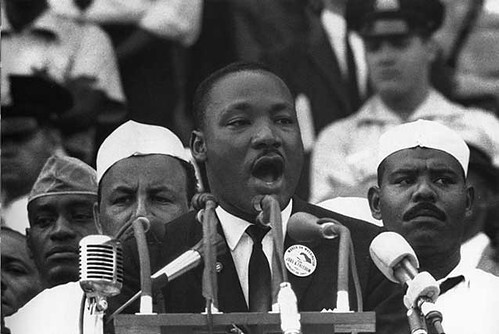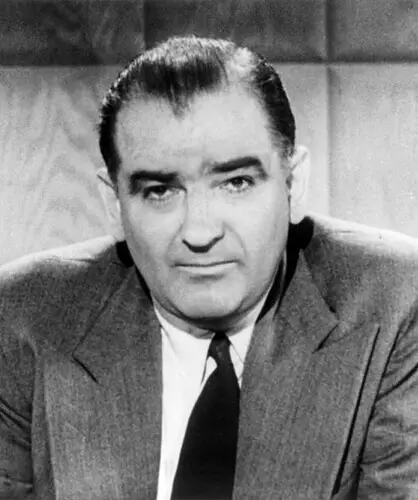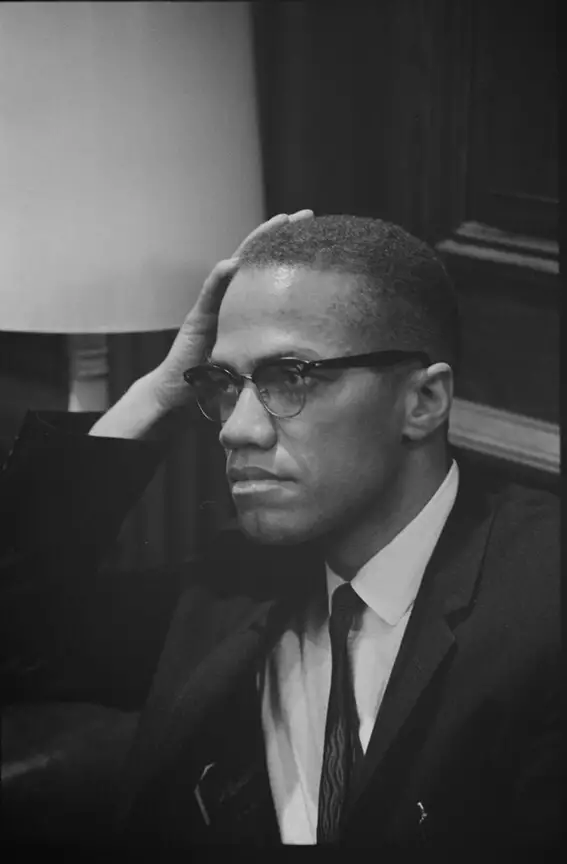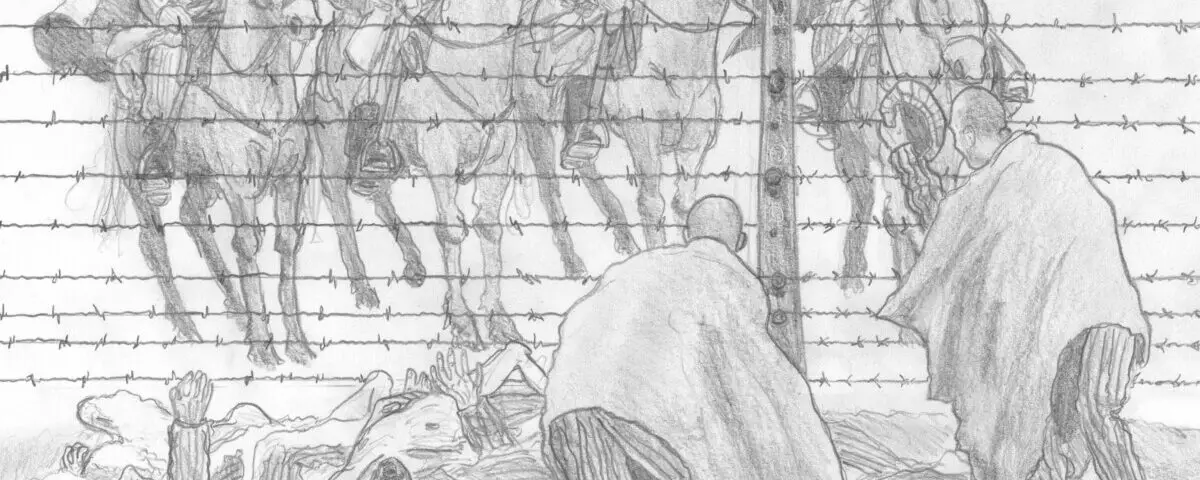|
Getting your Trinity Audio player ready...
|
Oratory has the power to move masses and shape the course of history. It has been the case since the fiery speeches of Martin Luther King Jr. to the chilling words of Adolf Hitler. Some famous orators used their skills to inspire progress and positive change. Others abused their power to incite violence and hatred, with potentially catastrophic consequences.
This article puts the life of one famous orator under the microscope. His influence, actions, and impact could have ended the world as we know it today. We do so by examining the power of oratory, its potential for destruction, and the historical context in which he operated.
This is a journey through the darker side of history. A reminder of the responsibility that comes with power and the power words can have when they are delivered with a great orator’s skill.
5 of the Most Famous Orators
As we unearth the famous orator who could have destroyed the freedom most of us enjoy, we take a look at 5 of the most recognisable orators who ever lived.
Reverend Martin Luther King Jr.

Martin Luther King, Jr. was an African American activist who was the major face of the 1960s civil rights movement. Until he was assassinated in 1968, he led numerous protests and marches against the abuse of people’s rights. He was famed for his methods of civil disobedience and nonviolent resistance.
For example, King oversaw the Bus Boycott in Montgomery, Alabama, a significant event in the Civil Rights Movement in the United States. It began on December 5, 1955, and lasted for 381 days, finally ending on December 20, 1956. The boycott was a response to the racial segregation policies on the city’s public buses.
I Had a Dream
He is probably most famous for one speech – I Had a Dream, delivered in front of the Lincoln Memorial. King inspired countless people by imagining a world without racism. His vision of a future where all citizens could co-exist in harmony is a goal we still reach for today.
Sir Winston Churchill
Winston Churchill is arguably the most famous orator and Prime Minister in British history. He is best known for leading Britain during World War II. During this frightening, bleak time, the British people looked up to him as a figure of stability, determination, and calm.
We Shall Fight on the Beaches
Just as important as his military acumen was his ability to give rousing speeches. His speech – We Shall Fight on the Beaches is a remarkable example of the power oratory can have to galvanise people to act together as one united front against an evil force. In this one speech, he had to prepare his country for a terrible time while reassuring them of ultimate victory. He did it with such skill that he inspired millions to fight and persevere.
Adolf Hitler

Adolf Hitler might have been the most evil man in history. The leader of the Nazi party in Germany, he seized power and ruled Germany as a dictator from 1933 until 1945. He masterminded the Holocaust, during which millions of Jews, Romani, LGBTQ+, disabled people, and other marginalised groups were exterminated. Concentration camps such as Auschwitz and Belsen were established to receive trainloads of people daily, who were then mass-murdered in gas chambers.
His goal was to rule the world and to oversee a master race of strong, blonde-haired Aryan people. The German army was the force used in Hitler’s attempt to conquer Europe, during World War II. He convinced countless people to follow him through his rage-fuelled speeches. His powerful oratory incited the people to such an extent they could blame others in society for their problems. His approach appealed to the masses, gaining him millions of supporters.
Joseph McCarthy

Joseph McCarthy was a US Republican senator who became the face of what is now thought of as witch hunt. A deeply suspicious man, he believed that America was being undermined by Communist spies. According to him the infiltrators were operating at all levels of government and in the entertainment industry.
He questioned countless people about their loyalties. In the process, he ruined many families as members lost their reputations, jobs, and livelihoods. It was so bad that some took their own lives. The gift of oratory allowed him to gain power. And he incited fear amongst American citizens, as he made his quest seem crucial to save the country.
Malcolm X

Like Martin Luther King, Jr., Malcolm X was a preacher and important Black leader in the American civil rights movement. And also like King, he was a famous orator who was assassinated in the mid-1960s.
What most distinguished Malcolm X from Martin King was a disagreement over civil disobedience. Malcolm X believed the action required for Black people to win equality should be determined by any means deemed necessary. And that included violence.
Due to his fantastic gift of oratory, the Nation of Islam’s spokesman, was able to grow the movement’s number from 400 to 40,000 members.
The Power of Oratory
Great orators can move millions to act and change the course of history. This isn’t only through the persuasiveness of their words but also the strength of their personalities and charisma.
Some great orators make strong, well-reasoned arguments built on facts and data. In those cases, the rhetorical devices and delivery techniques they use are meant to bolster truths. Other orators actually lie to the crowds, building their arguments on obfuscation and misdirection. In those cases, their oratorical skills are meant to distract the audience.
But in both cases, the skills of the person delivering the speech are more crucial than the content. Even the strongest argument backed up by evidence will fall apart if the speaker can’t connect with the audience. Even worse, if speakers are nervous or fidgety, stammer, or in any way seem ill at ease in front of a crowd, they will have no impact.
There’s a certain magic to great oratory. Some have the gift; others don’t. Oratory can move masses of people, shape public opinion, and inspire them to act. It is marvelous when the power is in the hands of a benevolent person set on improving the world and its inhabitants. But in the hands of a monster, it is ugly and can have dire consequences.
Oratory’s Potential for Destruction
The Reverend Martin Luther King, Jr., used the power of oratory for good, to inspire millions with his dream. But oratory can also be used for destructive purposes. Some of the most evil men in history used oratory to pursue dark goals built on sowing division and hatred.
Oratory can inspire people to be the best versions of themselves. But an orator can exploit an audience’s innate prejudices and fears. They can promise easy solutions to societal problems by placing the blame on a minority. They do so by spreading false information about the minority and then encouraging their followers to attack them.
The audience can get so caught up in hating the scapegoat they don’t realise their problems haven’t been solved. Giving into their rage may feel like a solution, but in reality all it has done is cause more destruction and loss.
Cult of Personality
Often an evil orator will create a cult of personality around them. This is when a concentrated effort is made to turn a leader into a beloved demagogue. It convinces the people to love and follow the leader without question so that everything commanded is considered correct.
They create this through the power of the orator. The response to the oratory is itself then bolstered by the cult in a dangerous circle that can seem inescapable.
The Orator Who Could Have Destroyed the World
The orator who could have destroyed the world was of course Adolf Hitler. Hitler rose to power by exploiting Germans’ anger and humiliation over the Allies’ treatment of them after World War I. The Treaty of Versailles economically devastated Germany.
Hitler started the Nazi Party and gave speeches in Munich that mesmerised tens of thousands. He gained support in the millions. In his speeches, he laid out his plans for a New Order in Germany. It entailed him being the supreme leader and wiping out the enemies he blamed for Germany’s current state. They included Jews, Slavs, queer and disabled people.
Hitler’s Methods
He mostly blamed the Jews, by accusing them of wanting to take over Germany. In one famous speech he said,
“There are only two possibilities…Either victory of the Aryan, or annihilation of the Aryan and the victory of the Jew”.
He claimed Jews ran the banks, and were at the head of an international Communist conspiracy.
In 1923, Hitler tried to overthrow the government. He was unsuccessful and ended up in prison for a year. During that time, he wrote a book, Mein Kampf, which laid out his vision for Germany’s future. It proved so influential the Nazi Party continued to grow. In 1932, the German president made Hitler the Chancellor.
After a communist started a fire in the German government buildings, Hitler convinced the president to pass a decree suspending civil liberties. Freedom of expression, the press, and public assemblies were suspended. The police were given the right to detain citizens with no need for cause to be established. This set the stage for Hitler’s rule.
Taking Control
He instantly began to dismantle German democracy and murdered every opponent who stood in his way. When the president died, he declared himself Commander in Chief and Fuhrer on top of his Chancellor title. He then violated the Treaty of Versailles by expanding the army and conscripting citizens as soldiers. He also developed the Luftwaffe (air force).
This ultimately led to the invasion of Poland. Hitler’s goal was literally to take over the entire world. To that end, he attempted to conquer all of Europe and had designs on the United States and beyond. If he had had his way, he would have ruled the entire globe. He would have been the head of a master race of tall, blonde-haired, blue-eyed followers.
He murdered over 11 million people in concentration camps, including 6 million Jews. None of this would have been possible without the power of oratory. He managed to convince millions of everyday people of his lies through his charisma and oration. He was a terrifying example of the harm that words can do when in evil, powerful, and manipulative hands.
Final thoughts
When exploring oratory and its destructive potential, we must reflect on the responsibility that comes with power. History has shown us that an orator’s influence can shape the course of human events, for better or for worse. The stirring words of Winston Churchill that inspired a nation during World War II… The divisive rhetoric of Joseph McCarthy that fueled paranoia and fear during the Cold War… The power of oratory is undeniable.
But with this power comes great moral responsibility. When oratory is used to inspire positive change and promote peace, not division and destruction, orators leave a great legacy. When they recognise the weight of their words and the impact they have on the world, they’re seen as wise.
As citizens, we must hold them accountable for their actions and words, demanding leadership that is responsible, ethical, and just.
So let us remember the lessons of history. Let us never forget the potential for destruction that comes with the power of oratory. Let us use our own voices to promote understanding, compassion, and progress. And let us ensure that the power of words is used for good, rather than for evil.
The future depends on it.
FAQs
Q1: What is oratory?
A1: Oratory is the art of public speaking, often used by influential figures throughout history to inspire and persuade audiences.
Q2: What is the power of oratory?
A2: The power of oratory lies in its ability to move masses, shape public opinion, and inspire action. Famous orators throughout history have used their skills to incite both positive change and destruction.
Q3: Who are some famous orators throughout history?
A3: Some famous orators throughout history include Martin Luther King Jr., Winston Churchill, Adolf Hitler, Joseph McCarthy, and Malcolm X.
Q4: How can oratory be used for destructive purposes?
A4: Oratory can be used for destructive purposes by exploiting people’s fears and prejudices. It can spread false information and incite violence and hatred.
Q5: Why is it important to understand the impact of oratory on history?
A5: It’s important to understand the impact of oratory on history because it can shape the course of human events. By understanding the power of oratory, we can better understand how leaders and orators have influenced the world. We can use this knowledge to promote positive change in the future.

